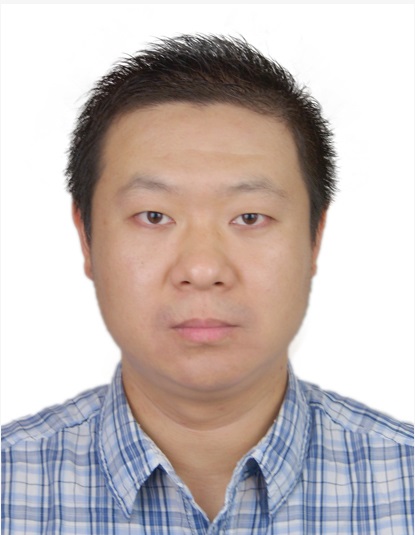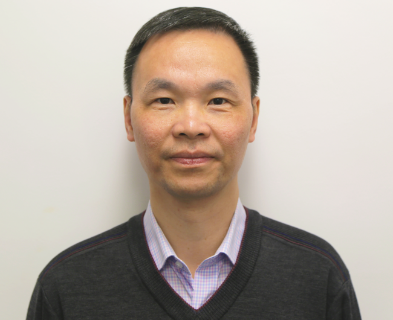

Professor Lu Leng, Nanchang Hangkong University, China
Lu Leng received his Ph.D degree from Southwest Jiaotong University, Chengdu, China, in 2012. He performed his postdoctoral research at Yonsei University, Seoul, South Korea, and Nanjing University of Aeronautics and Astronautics, Nanjing, China. He was a visiting scholar at West Virginia University, USA, and Yonsei University, South Korea. Currently, he is a full professor at Nanchang Hangkong University. Prof. Leng has published more than 100 international journal and conference papers, including about 70 SCI papers and three highly cited papers. He has been granted several scholarships and funding projects, including five projects supported by National Natural Science Foundation of China (NSFC). He serves as a reviewer of more than 100 international journals and conferences. His research interests include computer vision, biometric template protection and biometric recognition. Prof. Leng is an outstanding representative of "Innovation Talent" of Jiangxi Enterprise in "Science and Technology China" in 2021, received "Jiangxi Youth May Fourth Medal" in 2019, "Jiangxi Hundred-Thousand-Ten-thousand Talent Project" in 2018, "Jiangxi Voyage Project" in 2014, etc.

Professor Huiyu Zhou, University of Leicester, UK
Dr. Huiyu Zhou received a Bachelor of Engineering degree in Radio Technology from Huazhong University of Science and Technology of China, and a Master of Science degree in Biomedical Engineering from University of Dundee of United Kingdom, respectively. He was awarded a Doctor of Philosophy degree in Computer Vision from Heriot-Watt University, Edinburgh, United Kingdom. Dr. Zhou currently is a full Professor at School of Computing and Mathematical Sciences, University of Leicester, United Kingdom. He has published over 500 peer-reviewed papers in the field. He was the recipient of "CVIU 2012 Most Cited Paper Award", “MIUA 2020 Best Paper Award”, “ICPRAM 2016 Best Paper Award” and was nominated for “ICPRAM 2017 Best Student Paper Award” and "MBEC 2006 Nightingale Prize". His research work has been or is being supported by UK EPSRC, ESRC, AHRC, MRC, EU, Royal Society, Leverhulme Trust, Invest NI, Puffin Trust, Alzheimer’s Research UK, Invest NI and industry. Homepage: https://le.ac.uk/people/huiyu-zhou
Speech Title: Towards uncertainty in learning and modelling.
Abstract: There are many questions to answer in image interpretation and understanding. Uncertainty in image analysis needs strong and powerful modelling tools to describe the objects in the images. Artificial intelligence (AI) plays a very important role in the design of a robust tool for image representation. Using some examples from his own work on uncertainty analysis, Prof. Zhou will explore how AI can stimulate new concepts or development of dealing with complicated problems and lead us to novel adventures through these applications.

Professor Debnath Bhattacharyya, K.L. University, India
Currently, Debnath Bhattacharyya is associated as a Full Professor, K.L. University, Vaddeswaram, Andhra Pradesh, India. Presently he is an Invited International Professor of Lincoln University, KL, Malaysia; and Visiting Professor, University of Johannesburg, Johannesburg, South Africa. Debnath Bhattacharyya is the former Foreign Professor, Department of Multimedia Engineering, Hannam University, South Korea. He received my Ph.D. (Tech., Computer Science and Engineering) from the University of Calcutta, Kolkata. He received M.Tech (Computer Science and Engineering) from West Bengal University of Technology, Kolkata, India. He is the Senior Member ACM, ACM SIGKDD, Senior Member IEEE, Life Member of CSI, India, Senior Member of IACSIT, Singapore and Senior Member of IAENG, Hong Kong. He have been selected as ACM Distinguished Speaker (2017-2021). He is the Editor of Many International Journals (indexed by Scopus, SCIE, and Web of Science). He visited various Foreign Countries for presenting my research findings, Lectures / working as International Professor in Universities. He Published 272 Scopus Indexed Papers with H-Index 18, and 149 Web of Science Papers with H-Index 13. His Research interests include Security Engineering, Pattern Recognition, Biometric Authentication, Multimodal Biometric Authentication, Data Mining and Image Processing. In addition, He is serving as a reviewer of various International Journals of Springer, Elsevier, IEEE, etc., and International Conferences. He published 250+ Research Papers in International Journals and Conferences. Also published 4 textbooks for Computer Science and Engineering, so far.
Speech Title: Generative AI and its Application in Healthcare
Abstract: Generative AI is currently one of the most trending topics with its application in almost all fields of life. It is not only accelerating the development of new products but also automatizing the generation of new and synthetic content making it easier to train and improve machine learning models. One of the biggest achievements of Generative AI has been in the healthcare domain with drug discovery, personalized care, differentially private synthetic data generation, operational efficiency, and many more. Generative AI models like Generative Adversarial Networks, and Variational Autoencoders are employed to generate synthetic medical images, aiding in data augmentation, facilitating disease diagnosis, and enabling advanced medical imaging research. Additionally, generative AI techniques are utilized for creating realistic electronic health records (EHRs) and simulated patient data, supporting privacy-preserving data sharing, and empowering innovative studies for personalized medicine and drug development. NLP models like ClinicalBERT use transformer-based deep learning architecture to understand and represent contextual information in large clinical text datasets, such as electronic health records (EHRs) and medical literature, and can better grasp medical terminologies, domain-specific language, and contextual nuances that are unique to the healthcare field. In this presentation, we will delve into the realm of Generative AI and explore its profound implications in the healthcare domain.